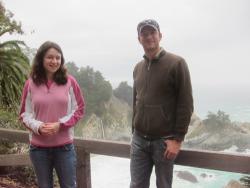John Downey Obituary | 12/20/04
Goodbye, my friend.
Downey Composed City's Identity
UWM emeritus professor worked with Youth Symphony
Orchestra
By GRAEME ZIELINSKI
gzielinski@journalsentinel.com
Posted: Dec. 18, 2004
John Downey was a conductor, composer and teacher key
to Milwaukee's identity in the world of contemporary
classical music whose sometimes abstruse and always
heartfelt works were performed and lauded here and
across the oceans.
An emeritus professor at the University of
Wisconsin-Milwaukee who taught there from 1964 to 1998,
Downey also had a long relationship with the Milwaukee
Youth Symphony Orchestra, for which he was the director
of music theory.
He died Saturday at Columbia St. Mary's, Milwaukee
Campus of stroke complications. He was 77.
Once called the "dean of Milwaukee composers" by a
Journal Sentinel critic, Downey wrote more than 70
compositions - including "Chant to Michelangelo" and
"For Those Who Suffered." They were performed by
several of the world's leading music bodies, including
the London Philharmonia Orchestra and the Warsaw
National Philharmonic.
Downey also embraced his role as teacher. His former
colleagues said his gentle, soft-spoken nature made him
universally beloved.
"They sometimes describe the way he taught as somewhat
otherworldly," said Francis Richman, executive director
of the youth symphony.
His students have included some of the bright lights of
contemporary classical music, such as composers Jerome
Kitzke and Michael Torke.
"He was very influential to me in many ways," Kitzke
said.
A major festival of Downey's work was performed at UWM
in 1998 and again over four days in London in 1999. The
latter slate received superlative reviews, though
Downey's hard-to-define style befuddled one scribe from
The London Guardian, who crankily described the work as
"a combination of 'Hippie-Romantic' and early
modernist."
For his part, Downey described as "undercurrent jazz"
the elements flowing in his multi-layered pieces. The
New Grove Dictionary of American Music told of how he
used "modified serial procedures to achieve pitch
coherence and large-scale harmonic relationships."
In any case, a Downey work never was easy to perform.
"It's challenging, but accessible," said Margery
Deutsch, UWM director of orchestral activities.
In the 1970s, he was a founder of the Wisconsin
Contemporary Music Forum. Downey also enjoyed a long
collaboration with his wife of 48 years, Irusha, a
linguist who died in 2000. In 1974, their
collaboration, "A Dolphin," was performed at UWM.
They had met while both were graduate students in
Chicago. Their marriage was predicated on Downey
learning her native Ukrainian. The judge for the test,
which he passed, was her father.
John Wilham Downey was born and raised on Chicago's
south side. A talented pianist as a young boy, he honed
his skills while playing jazz and blues improvisation
in the city's toddling corner taverns.
He went into music as a living tribute to his brother
James, who was killed in World War II.
He received a bachelor's degree in music from De Paul
University in Chicago and a master's degree in that
subject from Roosevelt University in Chicago. A
Fulbright scholar, he earned a PhD from the University
of Paris, where he wrote about the composer Bela Bartok.
Downey taught in Chicago before he was hired in 1964 by
UWM's fledgling fine arts program.
"We were looking for someone just like John," said
cellist George Sopkin, another early faculty member.
He received many honors for his work, including an
honorary knighthood from the France in 1980.
Survivors include a son, Marcus, of Milwaukee; a
daughter, Lida Munson, of Chicago; and two
grandchildren.
A visitation will be Tuesday from 4 to 8 p.m. at
Bruskiewitz Funeral Home, 5355 W. Forest Home Ave., and
a funeral Mass is scheduled for 11:30 a.m. Wednesday at
the Cathedral of St. John the Evangelist, 812 N.
Jackson St., both in Milwaukee.









Comments
MaryTenderLOS (11/27/11)
Ralph Gola (Unknown)
Thank you for your thorough and creative teachings. Also, thank you for your wisdom and kindness in life. You are certainly missed. May you continue your journey onward.
Love,
Ralph Gola
Benjamin Ponder (Unknown)
Benjamin Ponder
Stanley DeRusha (Unknown)